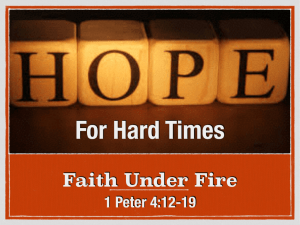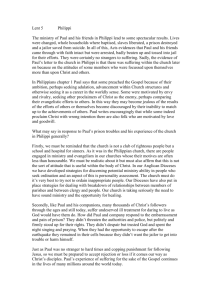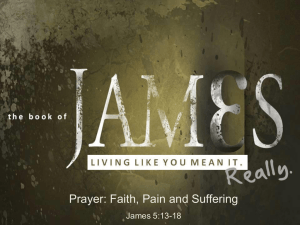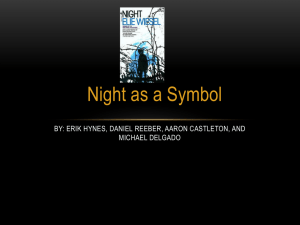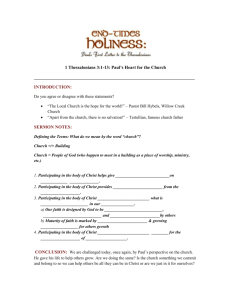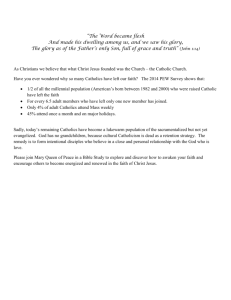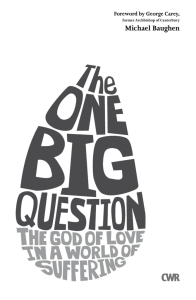Suffering - Called to Communion
advertisement
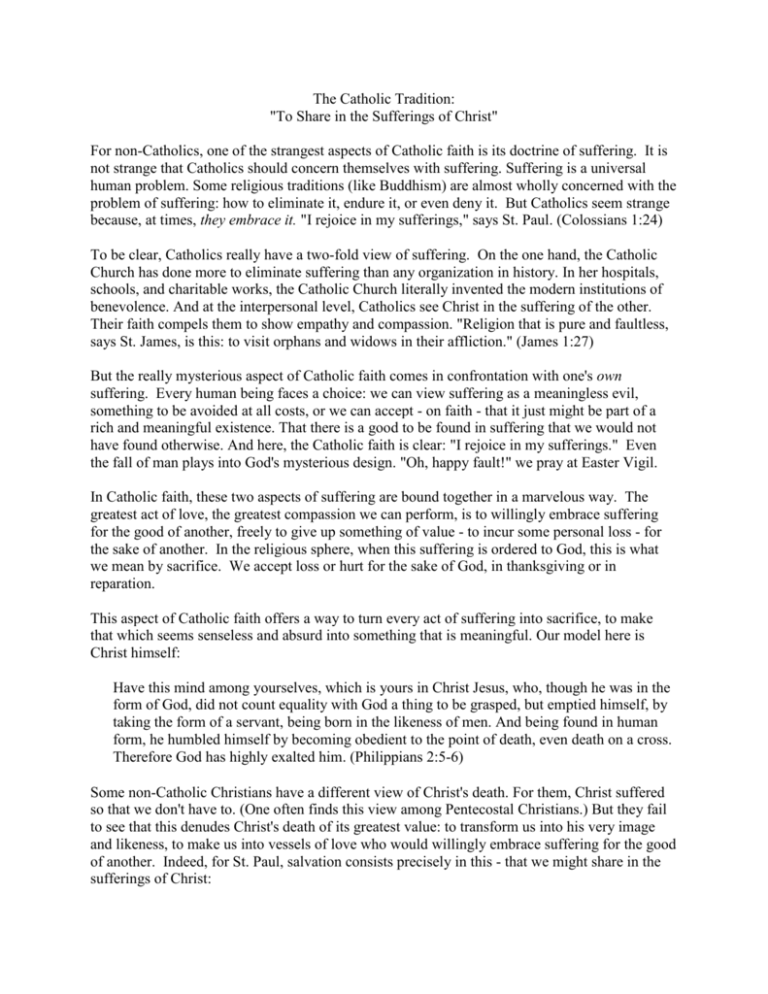
The Catholic Tradition: "To Share in the Sufferings of Christ" For non-Catholics, one of the strangest aspects of Catholic faith is its doctrine of suffering. It is not strange that Catholics should concern themselves with suffering. Suffering is a universal human problem. Some religious traditions (like Buddhism) are almost wholly concerned with the problem of suffering: how to eliminate it, endure it, or even deny it. But Catholics seem strange because, at times, they embrace it. "I rejoice in my sufferings," says St. Paul. (Colossians 1:24) To be clear, Catholics really have a two-fold view of suffering. On the one hand, the Catholic Church has done more to eliminate suffering than any organization in history. In her hospitals, schools, and charitable works, the Catholic Church literally invented the modern institutions of benevolence. And at the interpersonal level, Catholics see Christ in the suffering of the other. Their faith compels them to show empathy and compassion. "Religion that is pure and faultless, says St. James, is this: to visit orphans and widows in their affliction." (James 1:27) But the really mysterious aspect of Catholic faith comes in confrontation with one's own suffering. Every human being faces a choice: we can view suffering as a meaningless evil, something to be avoided at all costs, or we can accept - on faith - that it just might be part of a rich and meaningful existence. That there is a good to be found in suffering that we would not have found otherwise. And here, the Catholic faith is clear: "I rejoice in my sufferings." Even the fall of man plays into God's mysterious design. "Oh, happy fault!" we pray at Easter Vigil. In Catholic faith, these two aspects of suffering are bound together in a marvelous way. The greatest act of love, the greatest compassion we can perform, is to willingly embrace suffering for the good of another, freely to give up something of value - to incur some personal loss - for the sake of another. In the religious sphere, when this suffering is ordered to God, this is what we mean by sacrifice. We accept loss or hurt for the sake of God, in thanksgiving or in reparation. This aspect of Catholic faith offers a way to turn every act of suffering into sacrifice, to make that which seems senseless and absurd into something that is meaningful. Our model here is Christ himself: Have this mind among yourselves, which is yours in Christ Jesus, who, though he was in the form of God, did not count equality with God a thing to be grasped, but emptied himself, by taking the form of a servant, being born in the likeness of men. And being found in human form, he humbled himself by becoming obedient to the point of death, even death on a cross. Therefore God has highly exalted him. (Philippians 2:5-6) Some non-Catholic Christians have a different view of Christ's death. For them, Christ suffered so that we don't have to. (One often finds this view among Pentecostal Christians.) But they fail to see that this denudes Christ's death of its greatest value: to transform us into his very image and likeness, to make us into vessels of love who would willingly embrace suffering for the good of another. Indeed, for St. Paul, salvation consists precisely in this - that we might share in the sufferings of Christ: I want to know Christ—yes, to know the power of his resurrection and participation in his sufferings, becoming like him in his death, and so, somehow, attaining to the resurrection from the dead. (Philippians 3:10-11) We hear often that the Eucharist is "the source and summit" of the Catholic faith. This is because the Eucharist is at the heart of this transformation through suffering. The Eucharist is the Sacrifice of Christ, re-presented to God in thanksgiving and reparation. But we share in that offering of Christ. We bring all our "prayers, works, joys, and sufferings" to the Mass. Through the Mass, the most seemingly meaningless toil can become an act of religious beauty. Everyone has to confront the problem of suffering. The great question is whether we find meaning in it or not. Dag Hammarskjöld, the former Secretary General of the U.N., beautifully described his own confrontation with this mystery: I don't know Who — or what — put the question, I don't know when it was put. I don't even remember answering. But at some moment I did answer Yes to Someone — or Something — and from that hour I was certain that existence is meaningful and that, therefore, my life, in self-surrender, had a goal. I don't know much about Hammarskjöld's Christian faith. I am puzzled by his ignorance of "The Questioner," though I am moved by how clearly he grasped "The question." Do we embrace life as given, replete with suffering and toil, as meaningful? I think St. Paul would say to Hammarskjöld: "What you worship in ignorance, this I proclaim to you." (Acts 17:23) The Questioner has a name, and He has given us the answer: "Lord, be it done to me, according to Thy Word!"
